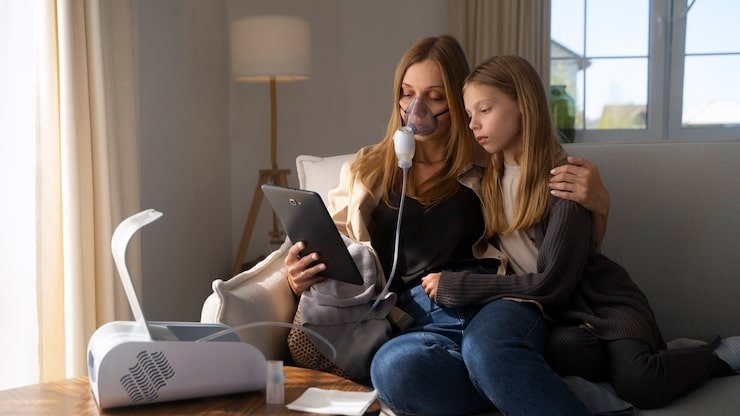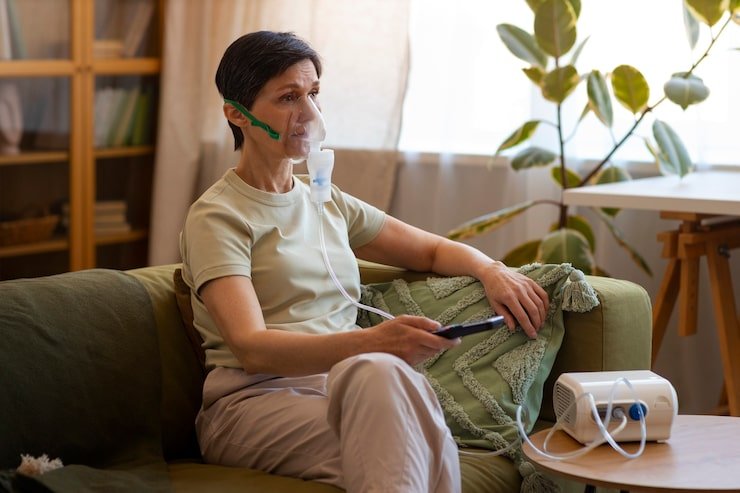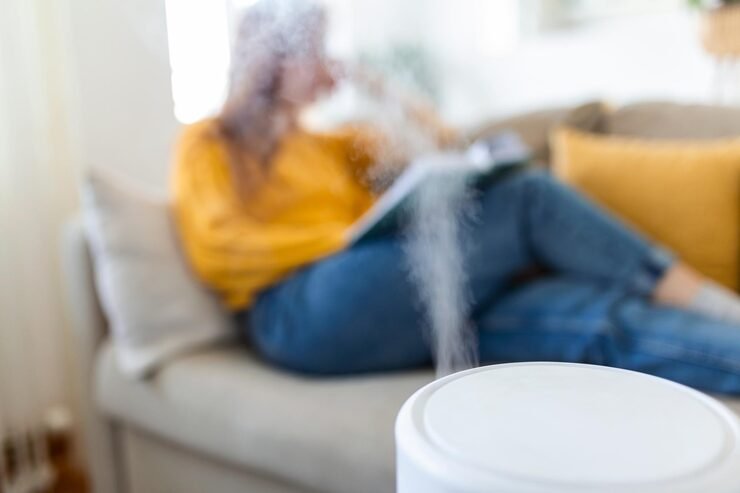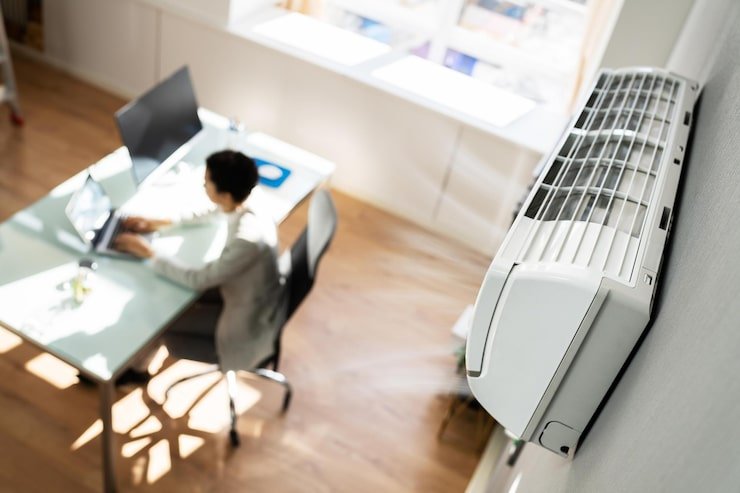DIY vs Professional Air Quality Testing: Which Is Right for You?
- admin323029
- Blog

Indoor air quality plays a critical role in your health and comfort. Yet, it’s often overlooked when evaluating a home’s safety. Whether you’re dealing with allergies, musty odors, or just want peace of mind, air quality testing is the only way to truly know what you’re breathing. But when it comes to testing, should you take the DIY route or hire a professional?
In this post, we’ll break down the key differences between DIY and professional air quality testing, helping homeowners in Massachusetts and New Hampshire make the right choice for their situation. From accuracy and cost to long-term benefits, understanding your options will help you protect your family and property more effectively.
Why Indoor Air Quality Shouldn’t Be Ignored
Air pollutants inside your home can come from many sources—cleaning supplies, furniture, mold, gas stoves, building materials, or even the ground beneath your basement. Poor air quality can cause or worsen allergies, asthma, fatigue, headaches, and long-term respiratory issues.
According to the EPA, indoor air can be two to five times more polluted than outdoor air. Homes in New Hampshire and Massachusetts, especially during cold winters, are often tightly sealed to conserve energy. Unfortunately, that same insulation can trap pollutants inside. That’s why regular focus keyword (air quality testing) is vital—regardless of the home’s age or appearance.
H2: DIY vs Professional Air Quality Testing – A Detailed Comparison
1. Accuracy and Scope of Testing
DIY Air Quality Testing:
Home kits are affordable and easily available online or in hardware stores. Most kits focus on specific pollutants—like mold, radon, or VOCs. While convenient, these tests often lack precision and can be limited in scope. You might not get a full picture of your home’s air health.
Professional Air Quality Testing:
Certified professionals use calibrated instruments to test for a wide range of pollutants. They often take air samples and send them to accredited labs for detailed analysis. These experts can also assess HVAC systems, moisture sources, and ventilation. The result? Comprehensive and highly accurate focus keyword results.
Verdict:
For general screening, DIY kits can be a good start. But if health symptoms exist or you’re buying a home, professional testing is far more reliable.
2. Cost Comparison
DIY Kits:
Most kits cost between $30 and $100. They may include test strips or containers you mail to a lab. However, testing for multiple pollutants requires multiple kits, which can add up.
Professional Testing:
Prices range from $250 to $600 depending on the type and size of the property. Though it’s a bigger upfront cost, it covers broader testing in one visit, with expert interpretation of the data.
Verdict:
DIY is cheaper initially. But when accuracy and breadth are needed—such as after water damage or before a home purchase—professional air quality testing delivers better value.
3. Ease of Use
DIY Kits:
Simple to use with step-by-step instructions. However, interpreting results can be confusing for non-experts. False positives or inconclusive data are not uncommon.
Professional Services:
The technician handles everything—from sample collection to analysis and recommendations. There’s no guesswork, and you get actionable steps if problems are found.
Verdict:
If you want clarity and confidence in your results, professional testing is far easier and more thorough.
4. When to Choose DIY Testing
-
If you’re checking for a specific concern (like mold in one room)
-
When you’re on a budget and just want a basic screening
-
To monitor air after changing household products or habits
-
As part of seasonal home maintenance
5. When to Choose Professional Testing
-
You’re experiencing persistent allergy symptoms
-
After a flood, leak, or renovation
-
Before buying or selling a home in Massachusetts or New Hampshire
-
If your home has a basement (radon risk is higher in these regions)
-
For detailed health and safety assurance, especially with kids or seniors
Local Factors in Massachusetts and New Hampshire
The climate and building trends in Massachusetts and New Hampshire influence indoor air quality. Cold winters mean homes stay sealed, reducing fresh air flow. Older homes in historic towns may contain materials like lead, asbestos, or outdated insulation. Areas with higher soil uranium levels—common in parts of New Hampshire—also pose greater radon risks.
These regional details make air quality testing more than just a precaution—it’s often a necessity. Choosing the right type of test ensures your home is safe in ways that basic inspections or routine cleanings can’t address.
Health and Financial Benefits of Professional Testing
Professional focus keyword doesn’t just help you breathe easier—it can also protect your wallet. Detecting problems early may prevent expensive remediation later. For instance, catching hidden mold before it spreads could save thousands. Likewise, discovering high radon levels before you buy a home gives you power to negotiate repairs.
It also provides peace of mind. If you rent or own property in areas like Salem, Manchester, or Worcester, having documented test results can be beneficial when dealing with landlords, tenants, or insurers.
Final Thoughts
Choosing between DIY and professional air quality testing depends on your goals, your budget, and the condition of your home. While DIY kits offer a quick glimpse, they’re not a substitute for the depth and reliability of professional testing. If health, safety, or home value are on the line, it’s best to work with a certified expert who understands local conditions in Massachusetts and New Hampshire.
Don’t wait for symptoms or surprises.
Contact us today to schedule a professional air quality test and get peace of mind about what you’re breathing in your home.
FAQs About DIY vs Professional Air Quality Testing
1. Is DIY air quality testing reliable?
DIY air quality testing can detect some pollutants, but it often lacks accuracy. For full results, professional focus keyword is more effective and trustworthy.
2. What do professional air quality tests include?
Professional focus keyword includes testing for mold, VOCs, radon, allergens, and more. It provides lab-certified results and expert interpretation.
3. How much does air quality testing cost in Massachusetts and New Hampshire?
DIY kits start around $30, but professional air quality testing typically ranges from $250–$600 depending on the home’s size and testing scope.
4. Should I test indoor air quality even if I don’t notice symptoms?
Yes. Many pollutants are odorless and symptom-free until exposure builds up. Regular focus keyword helps you detect hidden risks early.
5. Can I trust online home test kits?
Some DIY kits offer helpful insights but often miss complex pollutants. Professional focus keyword is more complete and accurate, especially in older homes.
Are you worried about the cleanliness of your space?
Let us help you! Cleaning services are our specialty, and we offer a complete range of cleaning and maintenance services. Get a free estimate!




